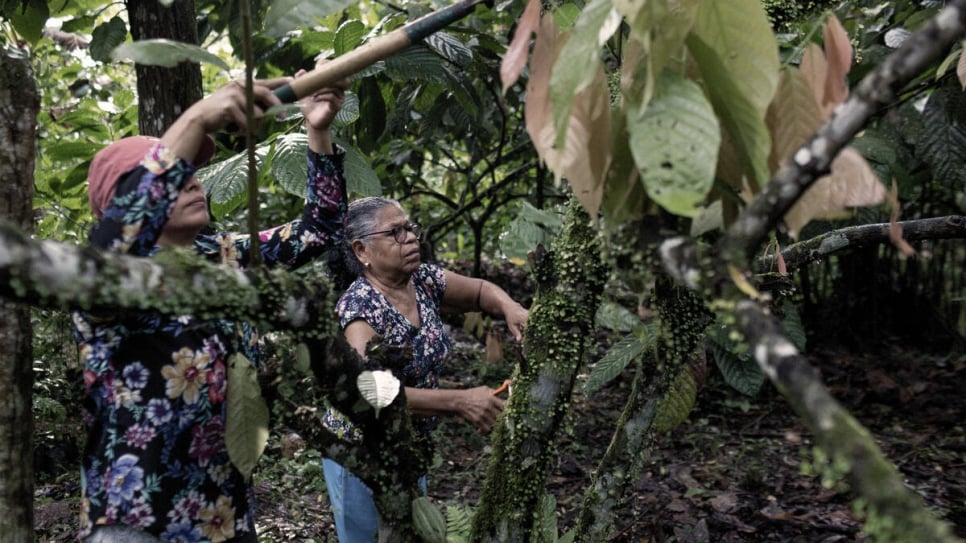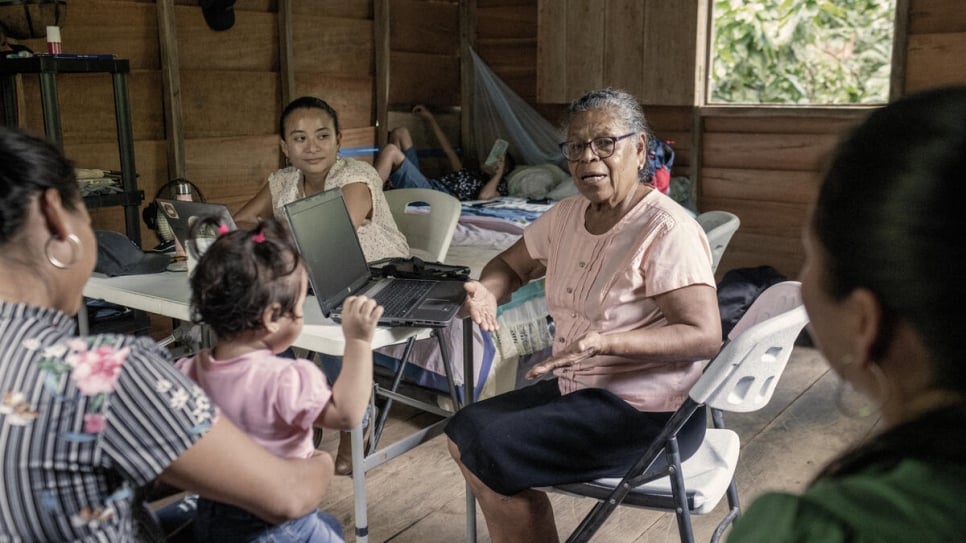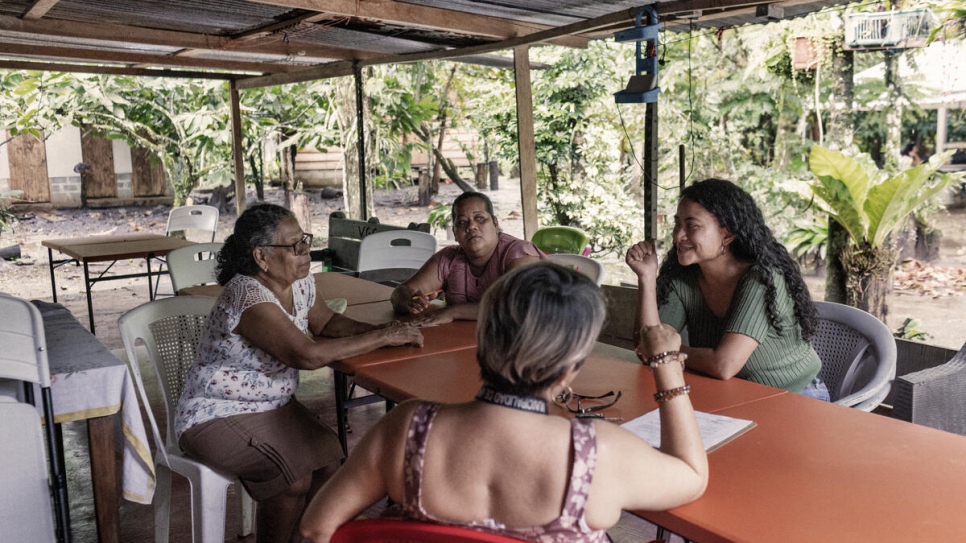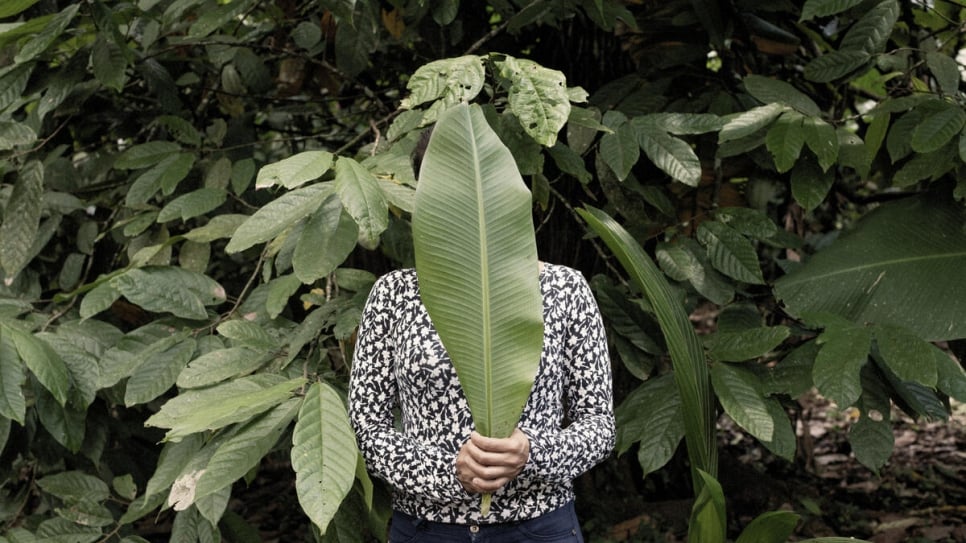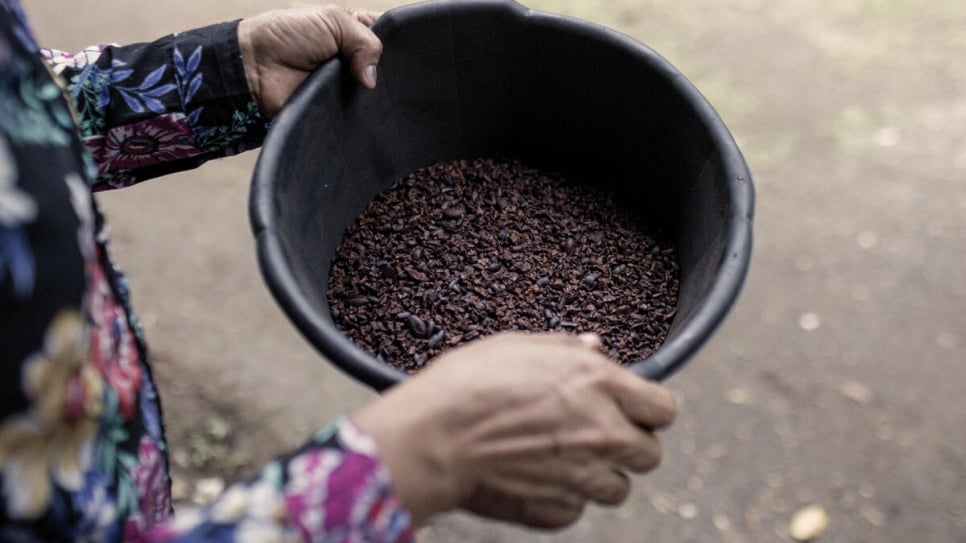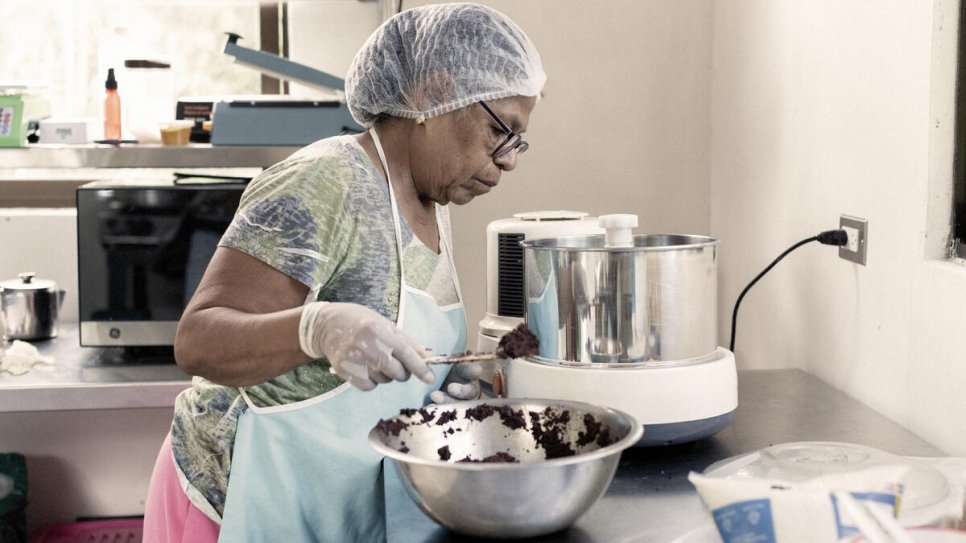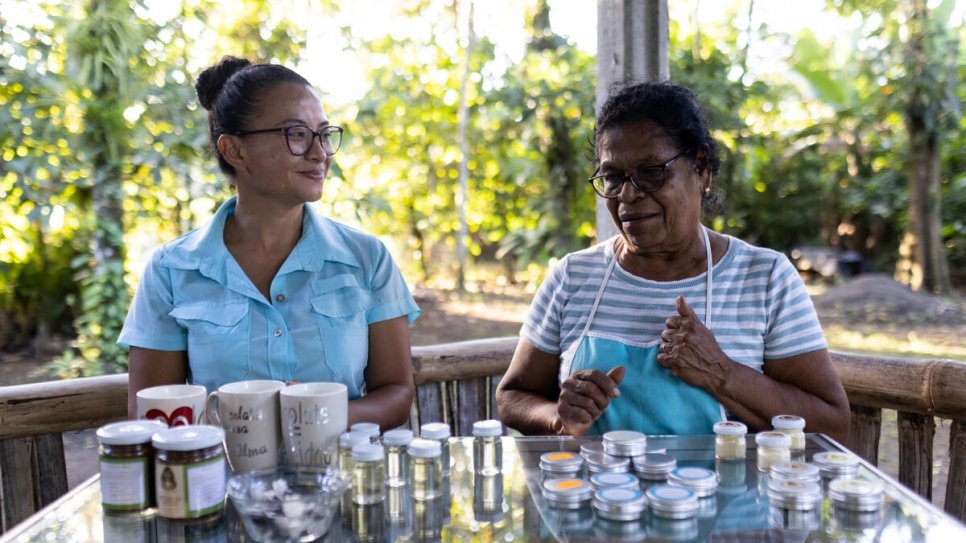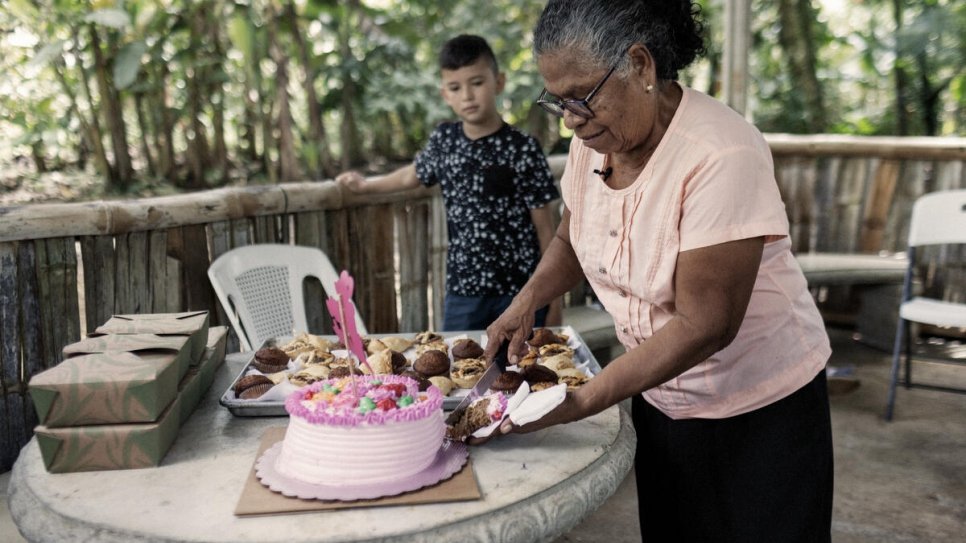Former midwife delivers safety and hope to Nicaraguan refugee women
Since arriving in Costa Rica more than 50 years ago, Vicenta González has made it her mission to help local and refugee women escape abuse and make a fresh start.
Vicenta González, 74, inspects cacao beans drying in a structure built for that purpose on her farm in northern Costa Rica.
© UNHCR/Nicolo Filippo Rosso
Women have been travelling to Vicenta Gonzalez’s farm to seek her help for nearly half a century. It sits at the end of bumpy dirt road in a remote region of northern Costa Rica, and during the rainy season the route becomes an almost impassable churn of mud. Even then, her driveway is continually abuzz with vehicles of all kinds and a steady stream of visitors who make the trip to Vicenta’s place on foot.
At an age when many are settling into retirement, Vicenta, a 74-year-old great-grandmother and former midwife, has never been busier. From launching community projects and finding people work in an area plagued by unemployment, to defying deep-rooted machismo and seeking out refuge for survivors of gender-based violence, she is a fulcrum of her community to whom many turn for help.
Since 2018, a social and political crisis in Costa Rica’s northern neighbour, Nicaragua, has forced more than 200,0000 people to flee the country. Vicenta – whose farm is just a few kilometres from the border – has worked tirelessly to provide food, shelter, and other basics to female asylum-seekers and their children.
“They are very much in need: They need a place to find refuge, and when they arrive, they don’t know where to go, don’t know anyone,” said Vicenta, who is universally referred to by the respectful title of Doña Vicenta. “If someone shows up sick, I have to figure out how to help them. If someone has been hurt, I have to figure out how to defend them… I have to be a nurse, a doctor, a counsellor, a babysitter.”
For her work defending the rights of vulnerable women from both sides of the nearby border, Vicenta has been chosen as the regional winner for the Americas of the 2022 UNHCR Nansen Refugee Award, a prestigious annual prize that honours those who have gone to extraordinary lengths to support forcibly displaced and stateless people.
Like many in this porous border region, Vicenta has roots in Nicaragua. She was born in the country, the fourth of her farm worker parents’ five children. With few opportunities to study, like many girls in rural areas throughout large swaths of Central America, she was mostly kept home. Still, Vicenta says that even as a child she was already dreaming of travelling and escaping the narrow constraints of the community of her birth.
Her generous spirit also revealed itself early on. Vicenta recalls being around 12 years old when she defied her mother’s orders to avoid a neighbour suffering from a contagious lung ailment to sneak him food and medicine.
That same generosity surfaced again after she met her Costa Rican husband and moved to his country some 55 years ago. After the young couple bought an 11-hectare farm with an old-growth cacao plantation, near the northern border town of Upala, she quickly became a key figure in the community, emerging as the area’s go-to midwife and the closest thing to a first responder. Long before the dirt road to the property was built, people would travel to the farm by canoe on a nearby river seeking Vicenta’s help with births and emergencies. Over the decades, she delivered some 213 babies, had two children of her own, and took in and raised three more – one of whom recently moved back to the farm, along with her own family, following the recent death of Vicenta’s husband.
Even after she stepped back in recent years from her role as a midwife, women continued to turn to Vicenta for help. She recalls one particularly harrowing incident in which a Nicaraguan woman showed up on her doorstep with seven children in tow, seeking work and a safe place to stay after her husband attacked her with a hammer.
"If we don't know our own rights, we can never lift our heads high."
Countless similar incidents led Vicenta to form AMECUP, whose Spanish-language acronym translates as the Association of Entrepreneur Women of Upala, an organization dedicated to helping defend women and their rights.
“If we don’t know our own rights,” said Vicenta, “we can never lift our heads high.”
AMECUP’s work centres, in part, around regular “afternoon coffee breaks,” in which women gather at Vicenta’s farm and talk openly about taboo subjects, such as gender-based violence. When they identify women experiencing such violence, the members of the association work to find the best solution, be that couple’s therapy or finding them refuge.
For the women who choose to leave violent relationships, Vicenta helps by providing temporary shelters or by referring the women to government agencies or NGOs. The lack of jobs in the area often binds women to abusive relationships, so AMECUP also equips survivors with the skills they need to start their own small businesses, providing workshops on such topics as baking and soap-making.
Women who have fled Nicaragua are particularly vulnerable to gender-based violence, Vicenta says. Often they have crossed the border with no documents, the few things they can carry, and children in tow.
“She (Vicenta) is a very special person,” said Yamileth García, Upala’s first-ever female mayor. “She has a noble heart and this desire, this gift of being able to help her fellow human beings, particularly those who come from Nicaragua.”
Vicenta has given over part of her property to the cause. The cacao pods from her organic plantation serve as the raw material for a wide range of products – from chocolate nibs and bars and even tea and “cacao wine” to beauty aids such as moisturizing face creams and lip gloss. The group raises money by selling the products under the label Cacaotica, and in exchange, the members of the cooperative lend a hand with the labour-intensive task of tending the plantation’s 3,000 trees.
“What motivates me is the love that I feel for others,” said Vicenta, whose memories of arriving here as a young woman help her empathize with the refugees and asylum seekers who are now fleeing her native Nicaragua. “I feel as if I were experiencing their problems… I lived through (similar) problems when I first arrived… That’s what motivates me and fills me with emotion.”
"She's a role model for us."
Working with Vicenta and the other women of AMECUP has been a godsend for Carmen,* a 38-year-old Nicaraguan mother of three who escaped persecution back home with her children, sisters and mother.
“She’s a role model for us,” said Carmen. Thanks to Vicenta and the other women’s help, she says, she was finally able to escape an abusive relationship and help provide for her family by making and selling artisanal soaps. “She shows women how to learn and how to be independent, so that we don’t depend on others.”
Asked if she ever feared that her work could put her in danger, Vicenta described being threatened by the husband of a woman to whom she had given shelter.
“I told him, ‘Well, if I’m going to die because of something, it will be defending women,’” she recalled, adding, “I’ve given my all, devoted my life to (helping) women escape violence.”

